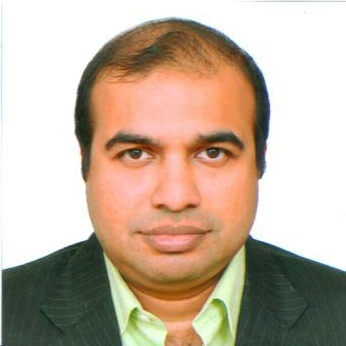
Prof. Deepu Philip
IIT KanpurDeepu Philip is a faculty of Industrial & Management Engg. Department and Design Programme of IIT Kanpur. He works in the area of Production and Operations, Systems Simulation, Product Life Cycle Management, Unmanned Aerial Systems, and Systems Engineering. He holds bachelor degree in Industrial Engineering with his doctorate in Industrial & Management Engineering from MSU Bozeman. He has both academic and industrial experience with leading organizations of the world. He has experience in designing and implementing complex system of systems in different fields including defense, aviation, fertilizer, strategic chemical plants, transportation, banking, automation, health care, energy, and communication.

Prof. Amandeep Singh Oberoi
Prof. Amandeep Singh Oberoi is a Faculty for online courses and shoulders the position of Senior Research Establishment Officer at the prestigious Indian Institute of Technology (IIT) Kanpur, India. Under the role, he is entrusted with the responsibility to manage Imagineering Laboratory, where the emphasis is principally given to providing novel product development and fostering services in defense, Agritech, and Medtech. Dr. Oberoi has accumulated an experience of over two decades: industrial and academic combined; his research interests include the things he values such as Sustainable Manufacturing Processes and Systems, along with areas such as Additive Manufacturing; Simulation of Manufacturing Systems; Product Design and Manufacturing. He has fetched grants and has holds projects from various national and international funding agencies such as DST, MoT, BIRAC, DRDO, SIDBI, CoL. His MOOCs courses in NPTEL and agMOOC are well-received, gaining favour with the audience and receiving positive feedback. Furthermore, he has visited countries like the USA, Canada, Australia, and Egypt to speak at various international symposiums organised by renowned bodies such as AARDO, CIRP, IEOM.

Prof. Prabal Pratap Singh
Prof. Prabal Pratap Singh is a Senior Project Engineer at the Indian Institute of Technology Kanpur. As part of his doctoral research at the Department of Industrial & Management Engineering, he specialized in Data Science and conducted his dissertation research in counterterrorism, peace, and conflict studies. His works on Data Sciences and Counterterrorism have been published & presented at prestigious international journals and conferences. In 2014, he earned a Bachelor of Technology in Mechanical Engineering. He earned a Master of Technology in Mechanical Engineering from PDPM IIIT D&M Jabalpur in 2016 by researching Computer-Aided Design (CAD), Computer-Aided Process Planning (CAPP), and Optimization Techniques. He received the Best Paper Award for his work in CAD and Counterterrorism.



DOWNLOAD APP
FOLLOW US